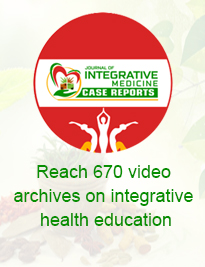- Research Article
- Year:2023
- Volume:4
- Issue:2
Effect of Yogic Intervention in Psychological Wellbeing (Parental Guilt, Psychological Distress, Anxiety, and Self-esteem) of Working Mothers
Sayani ChakrabortyAbstract
Background - Motherhood brings a lot of challenges especially for employed women worldwide. They face difficulties both at home and at the workplace. Eventually, they end up with emotional and psychological disturbances that lead to even compromise their career in some cases. Purpose - The objective of the study was to assess the effects of Yogic Intervention on parental guilt, psychological distress, anxiety, and self-esteem in working mothers. Methods - A sample of 39 working mothers (age 30 to 50) from different professions having symptoms of guilt, distress, and anxiety, had participated in a Randomized controlled trial pre-post experiment. They were allocated to the Yoga group (n = 22), had a 1-hour session, 5 days in a week for 1 month, and to the Control group (n = 17) with no such intervention. The measures included Guilt about Parenting Scale, Kessler Psychological Distress Scale, Depression Anxiety Stress Scale, and Rosenberg Self-esteem Scale. Results - showed a significant difference in the reduction of parental guilt (p = .039), psychological distress (p = .014), and anxiety (p = .012) in the yoga group compared to the control group. In the case of self-esteem on average, the score had improved but was not significant enough. Conclusion - Regular practice of simple asanas with proper breathing, pranayamas, meditation, and relaxation techniques improve the mental and psychological health of working mothers. Further study is recommended with more sample count and a comparative study between working and non-working mothers can be executed.
Keywords
Guilt about parenting
Kessler
employed
motherhood
dilemma



